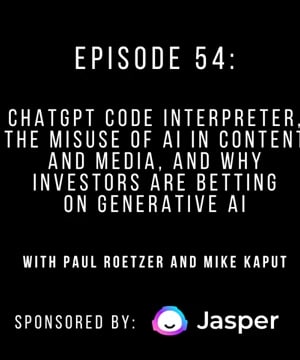Algorithmic content
Sources:
Algorithmic content, particularly in social media and digital platforms, significantly influences user behavior and engagement through sophisticated algorithms and AI. Here are key insights from trusted experts:
Personalized Propaganda Streams
Stuart Russell explained how algorithms generate customized propaganda for individuals based on their engagement, intensifying extreme viewpoints for higher emotional responses. Unlike historical propagandists, modern algorithms continuously tailor content to each user, promoting extreme content if it aligns with user behavior 1.
Pornography and Extremism
Ezra Klein and Amia Srinivasan discussed how algorithmic content in mainstream pornography escalates user preferences to more extreme levels. Algorithms push consumers towards progressively intense content, similar to their influence in other digital content spaces like YouTube 2.
Echo Chambers and Extreme Beliefs
Chris Williamson and Freya India highlighted how social media algorithms create echo chambers, reinforcing and escalating users' pre-existing beliefs. This is particularly impactful on Gen Z, where children are nudged towards extreme versions of their interests or insecurities, affecting their mental health and worldviews 3.
Transparency and Responsibility
Jason Calacanis emphasized the lack of transparency in how algorithms operate, suggesting third-party algorithms to bring more visibility and control. He compared this to nutritional labels on food, arguing for clearer disclosures about content algorithms' impact on users 4.
AI in Content Creation
Paul Roetzer underscores the necessity of human involvement in AI-enhanced content creation. He believes AI should assist but not replace human creativity, maintaining that complete automation isn't currently viable or desirable 5.
Engagement and Controversy
Tobias Rose-Stockwell described how algorithmic feeds prioritize engaging content, often favoring controversial or polarizing material to capture attention. This strategy stems from our natural tendency to focus on dramatic events, such as accidents, leading to heightened engagement with inflammatory posts 6.
Digital Traces and Attention Maximization
Dr. Gloria Mark detailed how algorithms use our digital footprints to customize content that captures attention. Algorithms predict user preferences and, in some cases, even alter user behaviors to fit predictable patterns, enhancing engagement metrics like click-through rates 7.
In summary, while algorithms and AI significantly enhance content personalization and engagement, they also pose challenges by promoting extreme content, reducing transparency, and sometimes altering user preferences.
RELATED QUESTIONS




